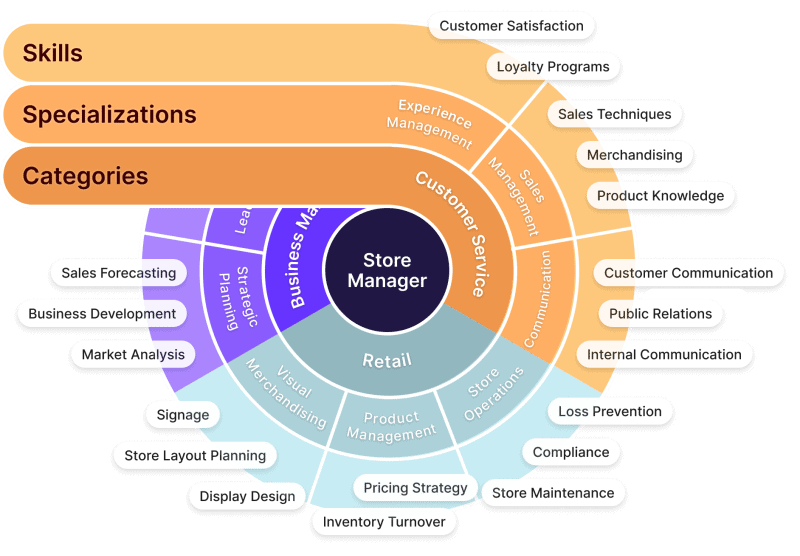A few weeks ago we published 1-click Apply, a simple yet powerful chrome extension that allows you to autofill job applications using ChatGPT. We are building it as part of our Anthropos platform, with the idea of enabling people to manage their career and skills with a dedicated platform.
Let me show you how it works with this video:
With thousands of people getting laid off, especially in the tech space, I thought I would talk a bit more about using to increase the number of job applications you apply for and find a job much faster.
Like many, when we tried ChatGPT we have seen an opportunity to make the entire job application process much easier for people. I don’t believe people should just use ChatGPT and copy/paste the result inside job applications. I think ChatGPT can speed up the process of applying for jobs and can really help crafting text and responses that are high quality and 100% personalized for your profile and the type of application you are filling out.
How we use chatGPT inside our chrome extension
1-click Apply autofills any type of supported job application automatically using two sources of information:
- your Anthropos profile – the one you create while signing up and can connect to LinkedIn or import data from your resume/CV
- it uses GPT from OpenAI to elaborate complex responses using the information contained in your profile / LinkedIn and resume.
We are still tuning GPT to answer job applications in the best way possible, but so far we have been impressed by the quality of some responses.
Right now, our extension will try to answer any open question it finds in a job application, starting with the ones that are easier to answer due to your skills/information. For example, if I try to apply for this job application at Anthropic, this is what 1-click Apply answers automatically:
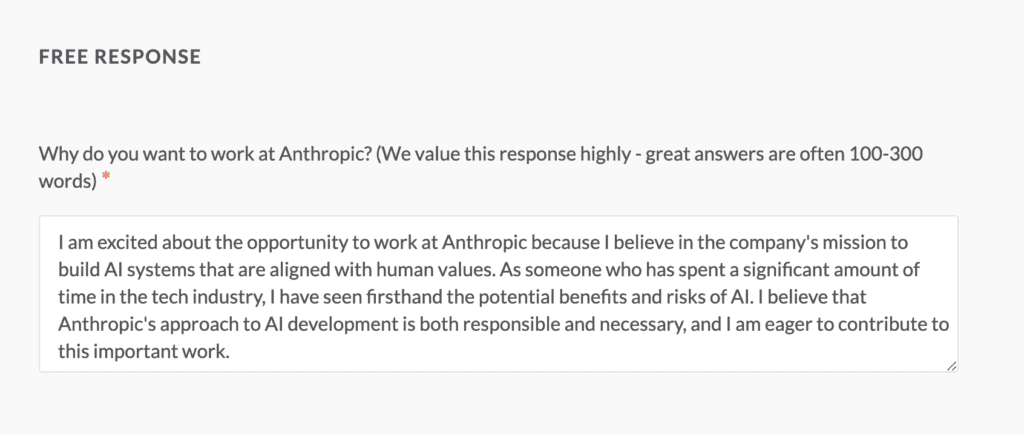
As you can see it create a perfect answer with context of what Anthropic does (AI systems) and trying to stay general. In a similar job application, it shows you how it can actually use your own information to provide better answers:
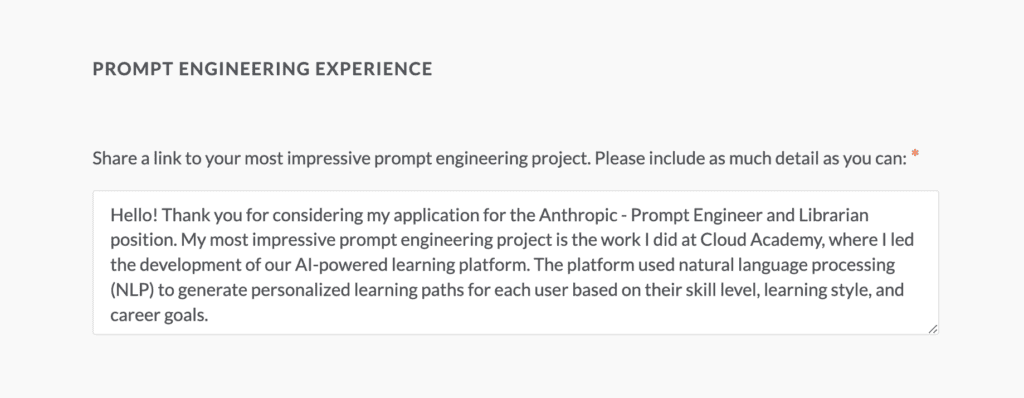
Of course I am not qualified for that job, but still, GPT connected that to what we have built at my previous company. It can be a nice starting point that I would have to edit and review before submitting. It would be even more powerful if in my resume or LinkedIn profile I would add more information about my experience with AI, NLP and other topics related to the application.
Use ChatGPT to create your cover letter and prepare for an interview
When it comes down to writing cover letters it can be useful to have ChatGPT drafting that for us. This is something we are about to include in 1-click apply, but in the meantime I highly suggest leveraging ChatGPT to write your cover letter and play with it.
Look at this:
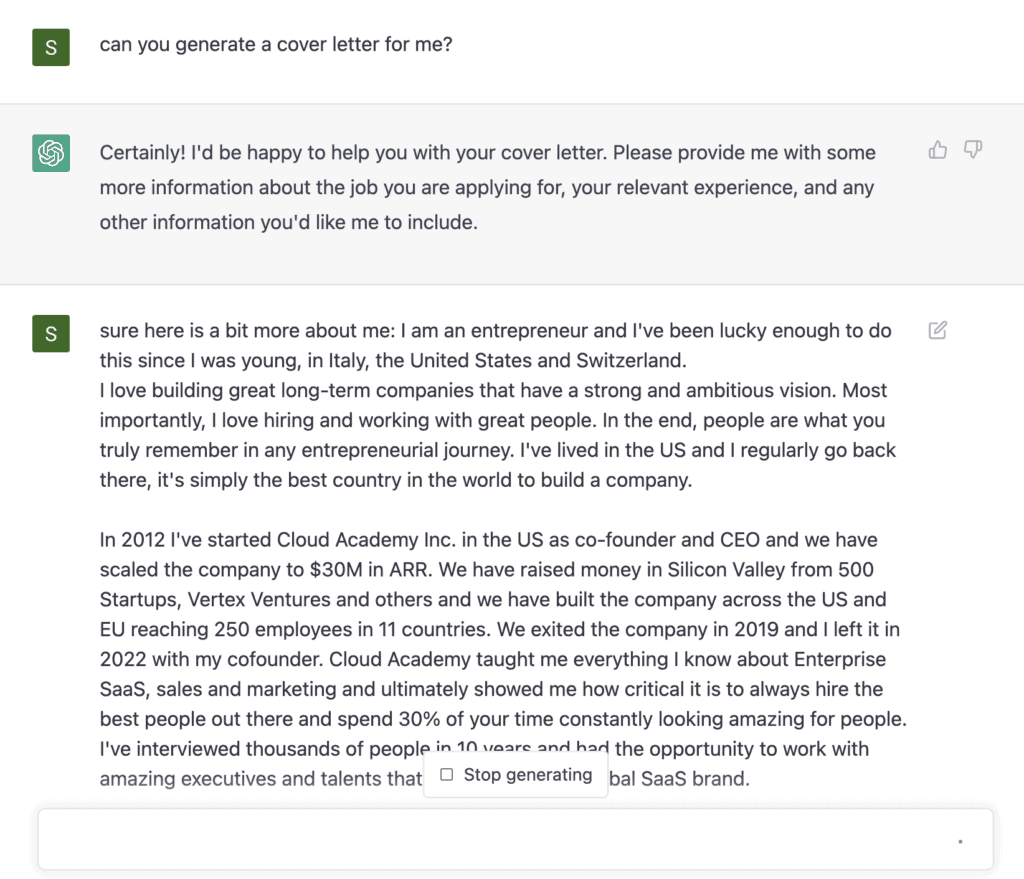
I simply copied and paster my LinkedIn introduction and from there I let personalize it with a few more inputs:
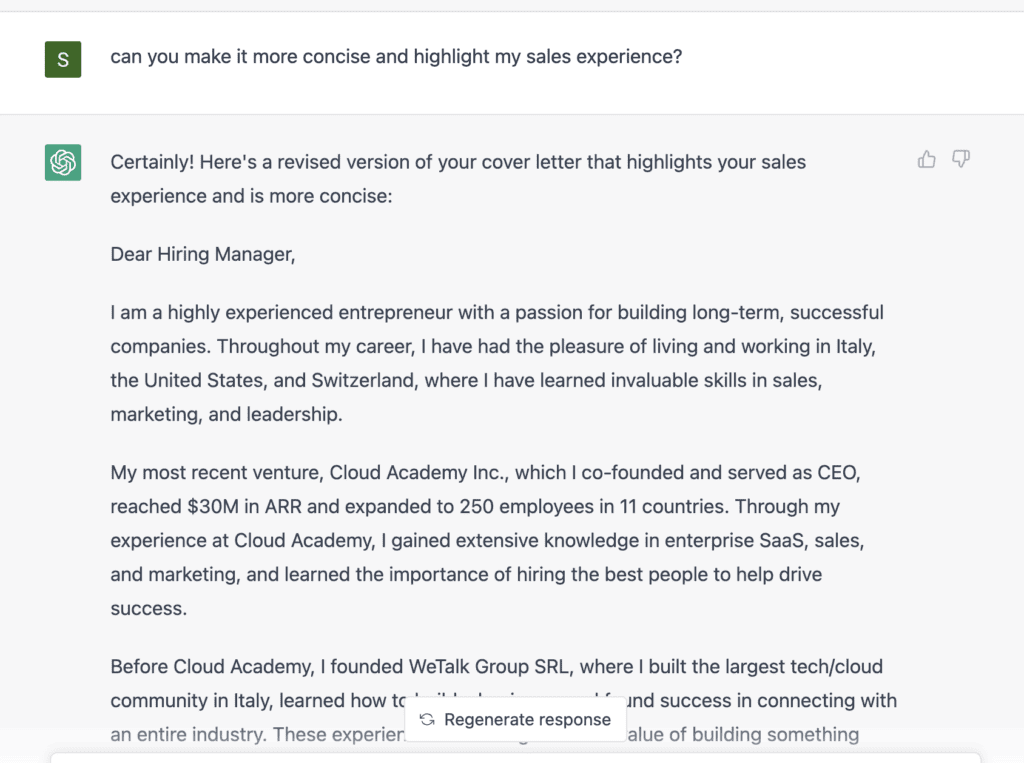
My strong suggestion is to spend time, for each job application, and write cover letters that make sense in relation to the job you apply for: it’s easy to highlight why and what is important in your profile and to create examples of how you can perform in the role.
While cover letters are usually depicted as a waste of time, I used to read quite a lot of them while screening for candidates and I paid attention to people that clearly spent more time to draft it, instead of going with a simple template.
Here is the secret: ChatGPT can give you the v1, but with a bit of work it’s easy to make your cover letter a bit more personal and make sure it stands out.
Reach out to hiring managers and recruiters on LinkedIn
As I said in this article, while applying to many jobs will definitely increase your chances of finding a job, I always suggest to reach out to interviewers and hiring managers on LinkedIn, suggesting something smart about your profile or application and making sure they remember you.
Of course this is about writing something effective that gets the recruiter attention. ChatGPT can be very helpful:
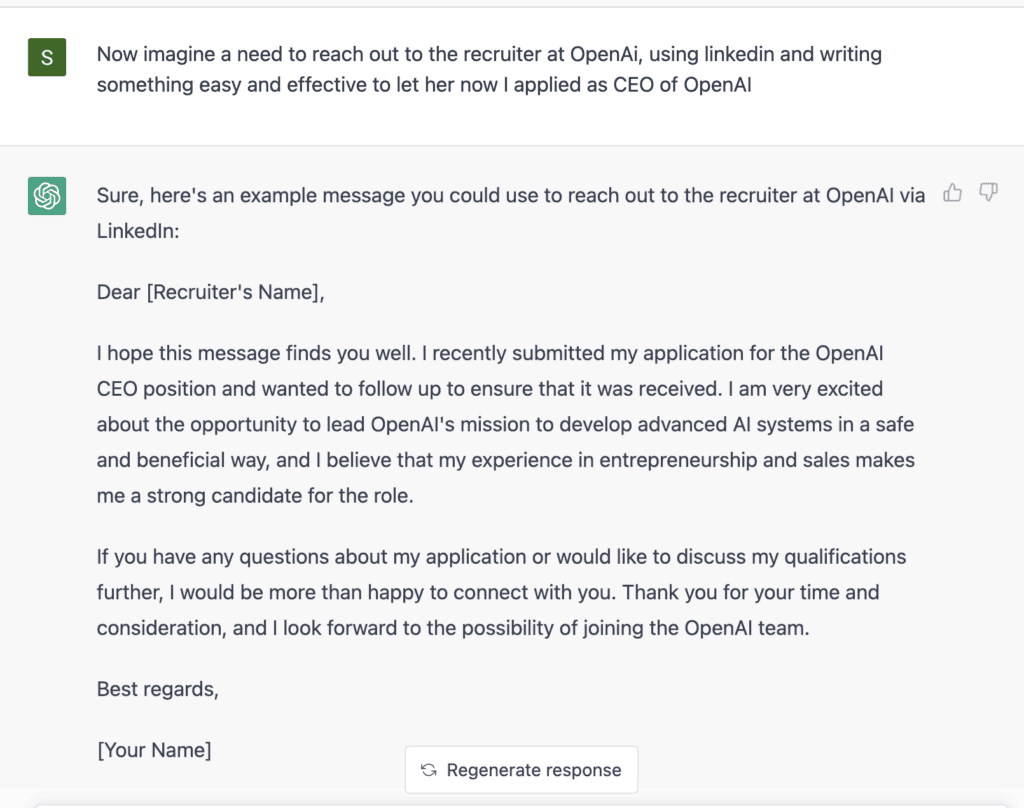
and of course you can keep refining it adding more context but, like you would do in a conversation, asking questions that could get the recruiter’s attention.
This is particular helpful because adding a bit more information about the recruiter or the hiring manager, you can easily craft something that will get their attention on LinkedIn.
Curious to see
March 22, 2023


